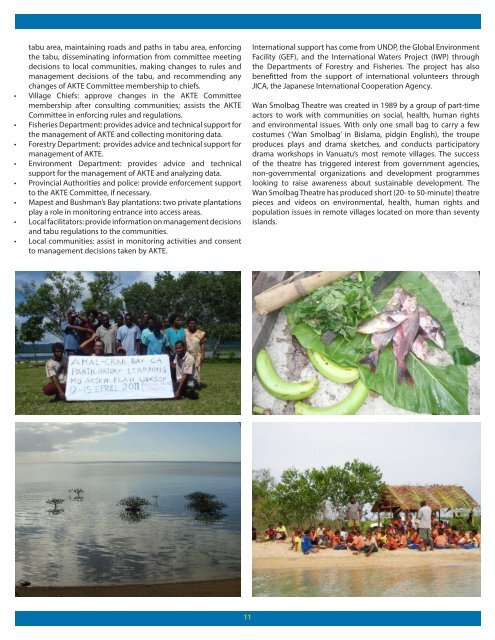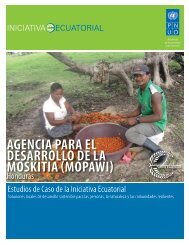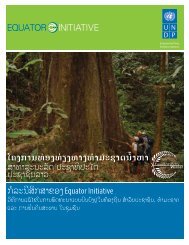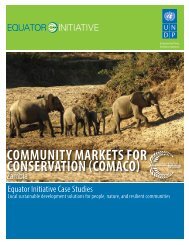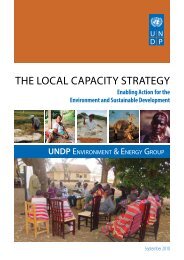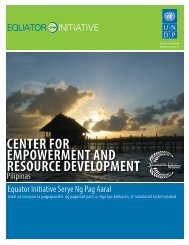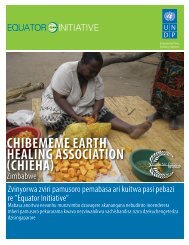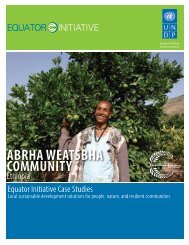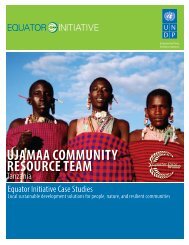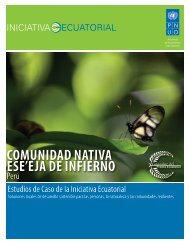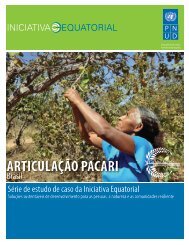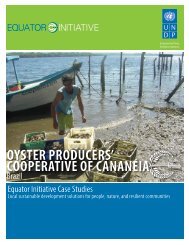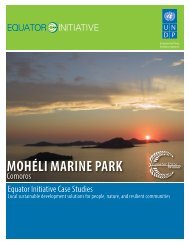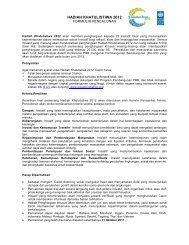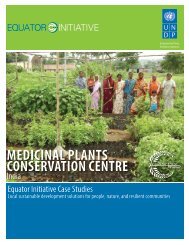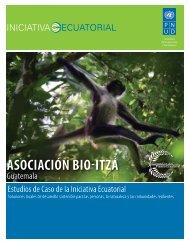AMAL-CRAB BAY Community Resource Management Initiative
AMAL-CRAB BAY Community Resource Management Initiative
AMAL-CRAB BAY Community Resource Management Initiative
You also want an ePaper? Increase the reach of your titles
YUMPU automatically turns print PDFs into web optimized ePapers that Google loves.
tabu area, maintaining roads and paths in tabu area, enforcing<br />
the tabu, disseminating information from committee meeting<br />
decisions to local communities, making changes to rules and<br />
management decisions of the tabu, and recommending any<br />
changes of AKTE Committee membership to chiefs.<br />
• Village Chiefs: approve changes in the AKTE Committee<br />
membership after consulting communities; assists the AKTE<br />
Committee in enforcing rules and regulations.<br />
• Fisheries Department: provides advice and technical support for<br />
the management of AKTE and collecting monitoring data.<br />
• Forestry Department: provides advice and technical support for<br />
management of AKTE.<br />
• Environment Department: provides advice and technical<br />
support for the management of AKTE and analyzing data.<br />
• Provincial Authorities and police: provide enforcement support<br />
to the AKTE Committee, if necessary.<br />
• Mapest and Bushman’s Bay plantations: two private plantations<br />
play a role in monitoring entrance into access areas.<br />
• Local facilitators: provide information on management decisions<br />
and tabu regulations to the communities.<br />
• Local communities: assist in monitoring activities and consent<br />
to management decisions taken by AKTE.<br />
International support has come from UNDP, the Global Environment<br />
Facility (GEF), and the International Waters Project (IWP) through<br />
the Departments of Forestry and Fisheries. The project has also<br />
benefitted from the support of international volunteers through<br />
JICA, the Japanese International Cooperation Agency.<br />
Wan Smolbag Theatre was created in 1989 by a group of part-time<br />
actors to work with communities on social, health, human rights<br />
and environmental issues. With only one small bag to carry a few<br />
costumes (‘Wan Smolbag’ in Bislama, pidgin English), the troupe<br />
produces plays and drama sketches, and conducts participatory<br />
drama workshops in Vanuatu’s most remote villages. The success<br />
of the theatre has triggered interest from government agencies,<br />
non-governmental organizations and development programmes<br />
looking to raise awareness about sustainable development. The<br />
Wan Smolbag Theatre has produced short (20- to 50-minute) theatre<br />
pieces and videos on environmental, health, human rights and<br />
population issues in remote villages located on more than seventy<br />
islands.<br />
11


